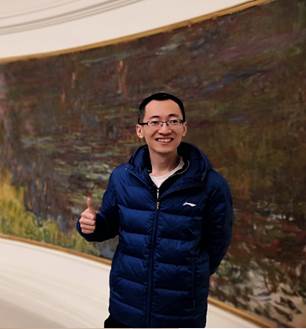“数之理”系列讲座——第五场:计算科学系专场
(一)
讲座名称:
随机优化
讲座时间:
7月17日晚上19:30-20:30
讲座地点:
主楼A203
主讲人:
刘嘉

主讲人介绍:
刘嘉,西安交通大学数学与统计学院科学计算系讲师。本科、硕士、博士均毕业于西安交通大学,期间赴法国巴黎第11大学联合培养。研究兴趣包括随机优化、鲁棒优化等近现代优化方法,及其在金融工程中的应用。他在这些方向取得了一些研究结果,在Quantitative Finance、European Journal of Operational Research、Operations Research Letters、Applied Mathematics & Optimization等国际权威数学、金融期刊上发表学术论文20余篇,主持国家自然科学基金青年基金一项,参与国家自然科学基金重大、重点、面上项目以及与深圳证券交易所、华为软件有限公司等合作的横向课题十余项。
内容简介:
报告将介绍随机优化的基本概念、主要模型、求解方法和典型应用。包括多阶段补偿问题、机会约束、均值-风险模型、分布式鲁棒优化等随机优化的典型模型,以及样本平均近似、情景树、随机动态规划等求解算法。最后将展示随机优化在金融工程、电力系统调度和强化学习等领域内若干实际问题中的应用。
(二)
讲座名称:
Efficient Global Optimization of Expensive Black-Box Functions
讲座时间:
7月17日晚上20:30-21:30
讲座地点:
主楼A203
主讲人:
李辉

主讲人简介:
李辉,博士,西安交通大学数学与统计学院教授,主要研究方向为:智能优化算法、多目标优化。
内容简介:
In many engineering optimization problems, the number of function evaluations is severely limited by time or cost. These problems pose a special challenge to the field of global optimization, since existing methods often require more function evaluations than can be comfortably afforded. One way to address this challenge is to fit response surfaces to data collected by evaluating the objective and constraint functions at a few points. These surfaces can then be used for visualization, tradeoff analysis, and optimization. In this paper, we introduce the reader to a response surface methodology that is especially good at modeling the nonlinear, multimodal functions that often occur in engineering. We then show how these approximating functions can be used to construct an efficient global optimization algorithm with a credible stopping rule. The key to using response surfaces for global optimization lies in balancing the need to exploit the approximating surface (by sampling where it is minimized) with the need to improve the approximation (by sampling where prediction error may be high). Striking this balance requires solving certain auxiliary problems which have previously been considered intractable, but we show how these computational obstacles can be overcome.